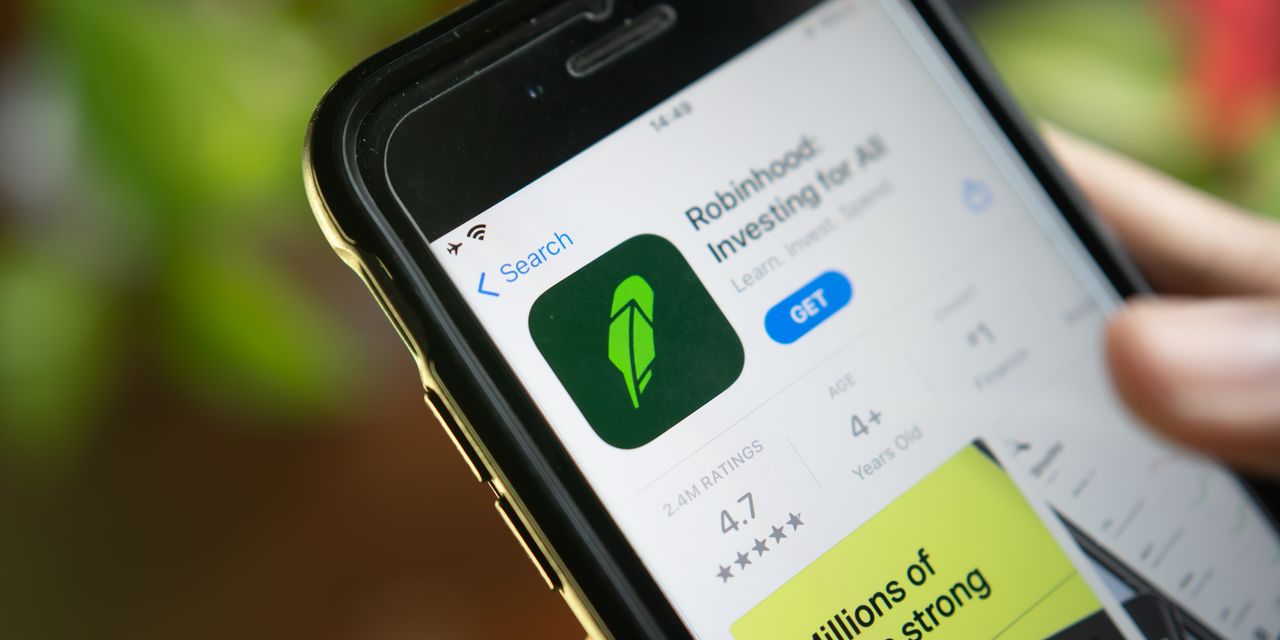Robinhood’s
latest quarterly earnings report beat analysts’ expectations not because traders got more excited about the stock market, but because they are getting more excited about cash—and helping boost the company’s interest income.
The broker is trying one tactic to boost trading again, however. Starting next week it will allow investors to trade a select group of stocks 24 hours a day, five days a week.
In the latest quarter, Robinhood (ticker: HOOD) actually made more money from interest on plain-Jane products such as deposits than it did on customer trading. Investors seemed to like the change; the stock was up 7.8% on Thursday.
Robinhood’s net interest income rose to $208 million in the quarter, eclipsing the company’s transaction revenue of $207 million. In much of 2020 and 2021, when a new generation of investors stormed the market, Robinhood’s transaction revenue exceeded 80% of total revenue.
In the first quarter, Robinhood lost 57 cents per share on $441 million in revenue, ahead of expectations for a 62-cent loss on $425 million in revenue. It added 120,000 customers to end the quarter with 23.1 million, ahead of expectations for 23.05 million.
Robinhood is still losing money, posting a net loss of $511 million in the quarter. But most of that loss was because of an accounting change related to a decision by the company’s founders to cancel a stock award. The company’s strategy— and sharp cost cuts—is bringing Robinhood closer to reliable profitability, according to CFO Jason Warnick.
“We’re getting a lot closer to GAAP profitability,” he said in an interview after the release, referring to Generally Accepted Accounting Principles. He said that without the accounting shift the company would have lost just 3 cents per share.
It is a strange turn for a company that critics have said makes investing feel like gambling because its interface encourages trading.
At a time when the financial sector has been reeling from bank failures, Robinhood’s stock has outperformed. Robinhood shares are up 12% this year, though it remains 76% below its price when it went public in 2021.
The company says its users have deposited billions of dollars in cash on the platform to take advantage of above-average interest rates. For Gold subscribers, who pay $5 a month, the cash sweep rate was recently increased to 4.65%.
“In Q1, Gold cash sweep balances grew to $8 billion,” Warnick said. “That’s up 67% from last quarter.”
As cash has gotten more attractive, stock-trading has declined. The company recorded 11.8 million monthly active users, down 26% year over year though up sequentially. And Robinhood’s crypto offerings have lost their luster amid a “crypto winter” where the prices of some coins have declined. The company’s revenue from crypto was down slightly from the fourth quarter, and Warnick said it is continuing to be cautious about offering new coins as the SEC cracks down on crypto.
“We’ve been really conservative. We’ve talked a lot about being a safety-first company, it’s our top value,” he said. “We’re certainly very mindful that we don’t want to be listing unregistered securities, which is the aspect that the SEC is really focused on.”
Unlike competitors, Robinhood has also not offered a staking product that pays interest on crypto assets—something
Coinbase
(COIN) offers and has attracted scrutiny from the Securities and Exchange Commission.
Write to Avi Salzman at [email protected]
Read the full article here


